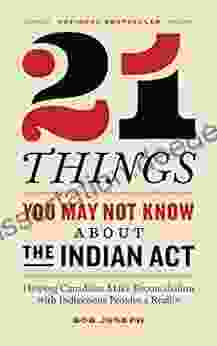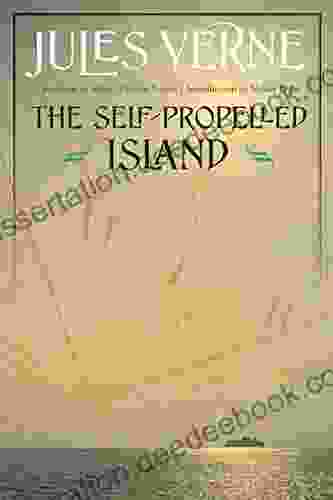21 Things You May Not Know About the Indian Act

The Indian Act, enacted in 1876, is a complex piece of legislation that has had a profound impact on the lives of Indigenous peoples in Canada. Here are 21 things you may not know about this pivotal document:
4.7 out of 5
| Language | : | English |
| File size | : | 1790 KB |
| Text-to-Speech | : | Enabled |
| Screen Reader | : | Supported |
| Enhanced typesetting | : | Enabled |
| Word Wise | : | Enabled |
| Print length | : | 201 pages |
| Lending | : | Enabled |
| Paperback | : | 104 pages |
| Item Weight | : | 12 ounces |
| Dimensions | : | 8.27 x 0.24 x 11.69 inches |
1. The Indian Act defined who was considered an "Indian"
Under the Indian Act, an "Indian" was defined as a person who was a member of an Indigenous band or who had the legal status of an Indian. This definition excluded many Indigenous people who did not live on reserves or who had lost their status through enfranchisement.

2. The Indian Act created Indian reserves
The Indian Act set aside certain areas of land as Indian reserves, which were intended to be the permanent homes of Indigenous peoples. Reserves were often located in remote and undesirable areas, and they were often too small to support the growing Indigenous population.

3. The Indian Act controlled many aspects of Indigenous life
The Indian Act gave the Canadian government extensive control over the lives of Indigenous peoples. The Act controlled everything from who could live on reserves to who could receive Indian status. It also gave the government the power to take children away from their families and place them in residential schools.
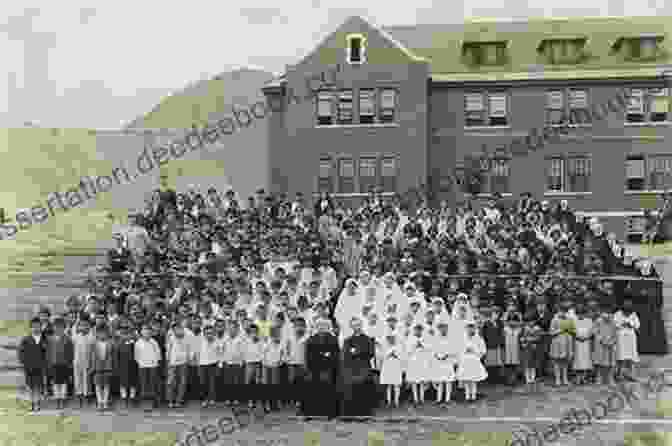
4. The Indian Act was amended many times
The Indian Act has been amended many times since it was first enacted. These amendments have changed the Act in a number of ways, including expanding the definition of Indian and giving Indigenous peoples more control over their own affairs.
5. The Indian Act is still in force today
The Indian Act is still in force today, although it has been significantly amended over the years. The Act continues to have a major impact on the lives of Indigenous peoples in Canada.
6. The Indian Act has been controversial
The Indian Act has been controversial since its inception. Critics of the Act argue that it is discriminatory and that it has been used to oppress Indigenous peoples. Supporters of the Act argue that it is necessary to protect the rights of Indigenous peoples and to ensure that they have a place in Canadian society.
7. The Indian Act has been challenged in court
The Indian Act has been challenged in court on numerous occasions. In 1999, the Supreme Court of Canada ruled that the Act was discriminatory in some respects. The Court's ruling led to a number of changes to the Act, but it is still in force today.
8. The Indian Act is a complex document
The Indian Act is a complex document that is difficult to understand. The Act is full of legal jargon and it is often amended, which makes it even more difficult to comprehend.
9. The Indian Act has a significant impact on Indigenous peoples
The Indian Act has a significant impact on the lives of Indigenous peoples in Canada. The Act controls everything from who can live on reserves to who can receive Indian status. It also gives the Canadian government the power to take children away from their families and place them in residential schools.
10. The Indian Act is a reminder of the history of colonialism in Canada
The Indian Act is a reminder of the history of colonialism in Canada. The Act was created by the Canadian government as a way to control Indigenous peoples and to assimilate them into Canadian society. The Act has had a devastating impact on Indigenous peoples, and it continues to be a source of controversy today.
11. The Indian Act is a work in progress
The Indian Act is a work in progress. The Act has been amended many times over the years, and it is likely to continue to be amended in the future. The goal of these amendments is to make the Act more fair and just for Indigenous peoples.
12. The Indian Act is a part of Canadian history
The Indian Act is a part of Canadian history. The Act has had a major impact on the lives of Indigenous peoples in Canada, and it continues to be a source of debate today. The Act is a reminder of the history of colonialism in Canada, and it is a challenge to all Canadians to work towards a more just and equitable society.
13. The Indian Act has been criticized for its assimilationist policies
The Indian Act has been criticized for its assimilationist policies. These policies were designed to assimilate Indigenous peoples into Canadian society, and they often involved the suppression of Indigenous culture and language. The assimilationist policies of the Indian Act have had a devastating impact on Indigenous peoples, and they continue to be a source of pain and resentment today.
14. The Indian Act has been criticized for its paternalistic approach
The Indian Act has also been criticized for its paternalistic approach. The Act treats Indigenous peoples as children who need to be protected and guided by the Canadian government. This paternalistic approach has undermined the self-determination of Indigenous peoples, and it has contributed to the dependency of Indigenous communities on the Canadian government.
15. The Indian Act has been criticized for its discriminatory provisions
The Indian Act has also been criticized for its discriminatory provisions. These provisions have created a two-tier system of citizenship in Canada, with Indigenous peoples having fewer rights and privileges than non-Indigenous citizens. The discriminatory provisions of the Indian Act have perpetuated the marginalization of Indigenous peoples, and they continue to be a source of discrimination today.
16. The Indian Act has been criticized for its role in the residential school system
The Indian Act played a key role in the establishment and operation of the residential school system. The Act authorized the government to remove Indigenous children from their families and communities and place them in residential schools. The residential school system was a horrific experience for Indigenous children, and it has left a lasting legacy of trauma and abuse.
17. The Indian Act has been criticized for its role in the Six Nations land claims dispute
The Indian Act has also been criticized for its role in the Six Nations land claims dispute. The Six Nations are a group of Indigenous peoples who have been fighting for the return of their traditional lands in Ontario. The Indian Act has been used to justify the government's refusal to return these lands
4.7 out of 5
| Language | : | English |
| File size | : | 1790 KB |
| Text-to-Speech | : | Enabled |
| Screen Reader | : | Supported |
| Enhanced typesetting | : | Enabled |
| Word Wise | : | Enabled |
| Print length | : | 201 pages |
| Lending | : | Enabled |
| Paperback | : | 104 pages |
| Item Weight | : | 12 ounces |
| Dimensions | : | 8.27 x 0.24 x 11.69 inches |
Do you want to contribute by writing guest posts on this blog?
Please contact us and send us a resume of previous articles that you have written.
 Book
Book Novel
Novel Page
Page Text
Text Genre
Genre Library
Library Newspaper
Newspaper Paragraph
Paragraph Sentence
Sentence Glossary
Glossary Bibliography
Bibliography Annotation
Annotation Scroll
Scroll Codex
Codex Bestseller
Bestseller Classics
Classics Library card
Library card Narrative
Narrative Biography
Biography Autobiography
Autobiography Dictionary
Dictionary Thesaurus
Thesaurus Narrator
Narrator Character
Character Resolution
Resolution Catalog
Catalog Card Catalog
Card Catalog Stacks
Stacks Archives
Archives Periodicals
Periodicals Research
Research Reserve
Reserve Academic
Academic Reading Room
Reading Room Rare Books
Rare Books Special Collections
Special Collections Literacy
Literacy Thesis
Thesis Dissertation
Dissertation Book Club
Book Club Billion Dollar Valuation
Billion Dollar Valuation Melissa Leapman Blowney
Melissa Leapman Blowney Abigail Steel
Abigail Steel Liane Carter
Liane Carter Drorit Metuki
Drorit Metuki Hannah Khalil
Hannah Khalil Joshua Slocum
Joshua Slocum Kim Long
Kim Long Bill Ferris
Bill Ferris Norman Polmar
Norman Polmar Beautiful World Escapes
Beautiful World Escapes Anna Hope
Anna Hope Avery Kingston
Avery Kingston Leigh Fowler
Leigh Fowler Lani Diane Rich
Lani Diane Rich Marcia B Siegel
Marcia B Siegel Tim Connors
Tim Connors Patrick E Hession
Patrick E Hession Stephanie Void
Stephanie Void Thomas Jefferson
Thomas Jefferson
Light bulbAdvertise smarter! Our strategic ad space ensures maximum exposure. Reserve your spot today!

 Hunter MitchellBetter Built Catalog Vicky Grubb: Elevate Your Building and Home Improvement...
Hunter MitchellBetter Built Catalog Vicky Grubb: Elevate Your Building and Home Improvement... Edgar HayesFollow ·15.7k
Edgar HayesFollow ·15.7k Jacques BellFollow ·17.3k
Jacques BellFollow ·17.3k Ernest ClineFollow ·3.5k
Ernest ClineFollow ·3.5k Finn CoxFollow ·5.6k
Finn CoxFollow ·5.6k Corbin PowellFollow ·15.8k
Corbin PowellFollow ·15.8k Ruben CoxFollow ·4k
Ruben CoxFollow ·4k Demetrius CarterFollow ·6.2k
Demetrius CarterFollow ·6.2k Ralph Waldo EmersonFollow ·12.4k
Ralph Waldo EmersonFollow ·12.4k

 Keith Cox
Keith CoxFrench Pieces for Flute and Piano: A Journey into...
The world of...

 Justin Bell
Justin BellThe Big Clarinet Songbook: A Musical Treasure for...
The clarinet, with its rich...
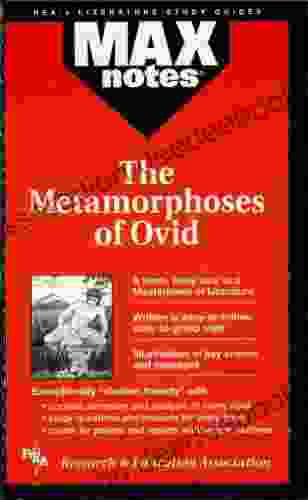
 Jamie Blair
Jamie BlairThe Metamorphoses of Ovid: A Masterpiece of...
An Epic Tapestry of Mythology and...
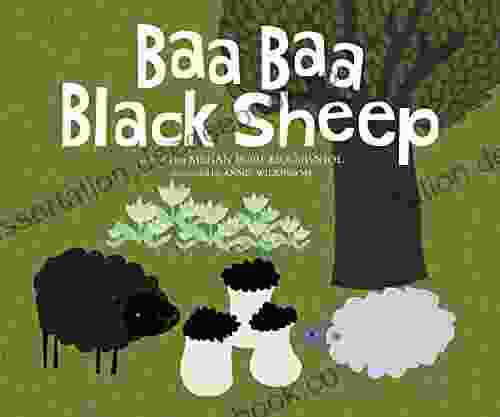
 Alan Turner
Alan TurnerBaa Baa Black Sheep: A Classic Sing-Along Song for Kids
Baa Baa Black Sheep...

 Bradley Dixon
Bradley DixonUnveiling the Enigmatic Shakespeare Spy: The...
Prologue: The Shadowy World...

 Gilbert Cox
Gilbert CoxUnleash Your Creativity with Plastic Craft Lace Projects:...
Plastic craft lace is a...
4.7 out of 5
| Language | : | English |
| File size | : | 1790 KB |
| Text-to-Speech | : | Enabled |
| Screen Reader | : | Supported |
| Enhanced typesetting | : | Enabled |
| Word Wise | : | Enabled |
| Print length | : | 201 pages |
| Lending | : | Enabled |
| Paperback | : | 104 pages |
| Item Weight | : | 12 ounces |
| Dimensions | : | 8.27 x 0.24 x 11.69 inches |


